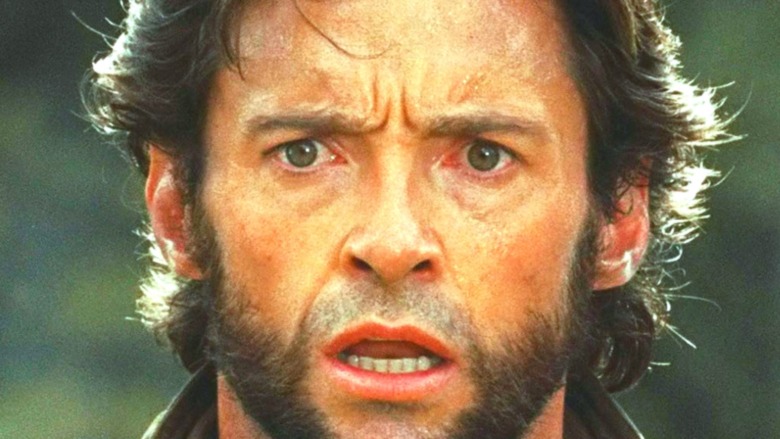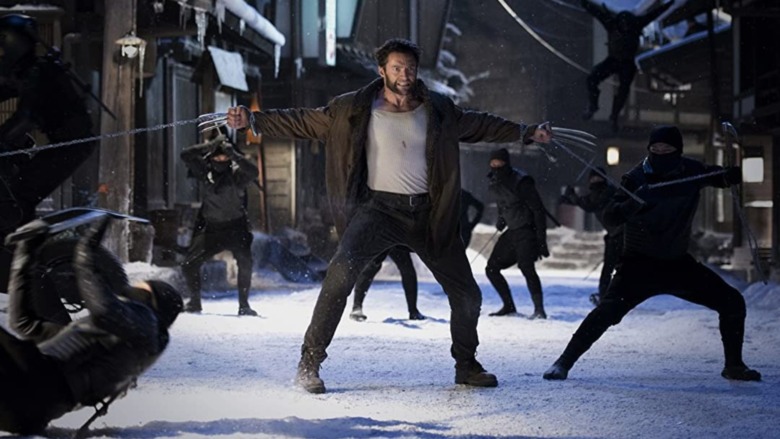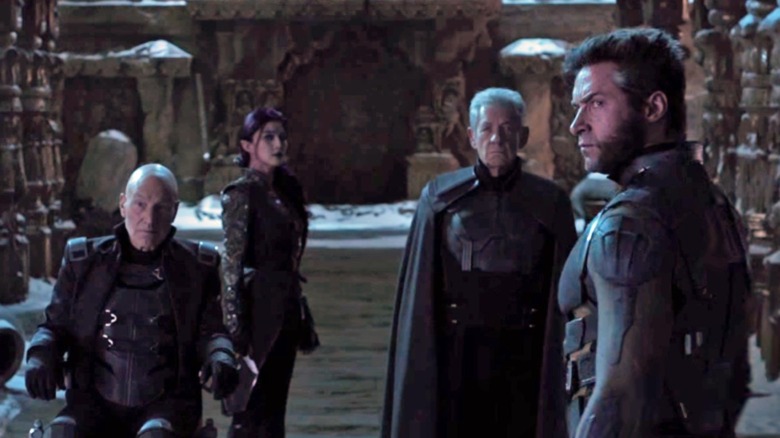The Ending Of The Wolverine Explained
It's hard being the middle child. Compared to its siblings, "The Wolverine," the second of Hugh Jackman's solo spinoff franchise featuring the titular X-Men character, is easy to forget. It's a film sandwiched between the critical disaster "X-Men Origins: Wolverine" that serves as fodder for numerous memes and "Logan," a masterpiece of the genre. It's easy to be overshadowed when caught between two such extremes. "The Wolverine" falls somewhere in the middle, good but not great, pleasing but not earth-shattering. But it deserves to be remembered, and not just for the way it adapts one of the character's classic comic stories, written by Chris Claremont and penciled by Frank Miller, for the screen.
Yes, the film finally takes Logan to Japan, a location that's always held an important place in Wolverine's background and mythos. Yes, it introduced director James Mangold to the franchise, which would turn out to be important. But it also does important work to move the character and the world he is a part of closer to their respective ends.
Where does The Wolverine leave Logan?
The bulk of the film's story really does stand alone. Wolverine goes to Japan, falls in love and fights ninjas, Yakuza, and a giant cybernetic mech suit Silver Samurai. He wins each of these battles, survives the film, and prepares to return to America. Since the movie is filled with characters who won't reappear anywhere else in the franchise, its lasting impacts are mostly character details related to Logan himself. For one, it takes the time to hone in on a facet of the character that is sometimes overshadowed: that he is gruff and aloof largely because he's depressed. His life has been an endless source of pain; remember how he tells Rogue in the first "X-Men" that it hurts "every time" the claws come out. All his battles and all his personal tragedies take a toll his healing factor can't repair, represented most prominently by the visions he gets of Jean Grey (Famke Janssen), whom he killed to save the world from the Phoenix during "X-Men: The Last Stand."
Secondly, it introduces the concept that his healing factor might not be permanent. The plot of the film revolves around the billionaire industrialist Ichirō Yashida (Haruhiko Yamanouchi) tryng to steal Logan's healing factor and use it to cure his cancer. Yashida's henchmen plant a device inside Logan that dulls his powers and causes him to heal more slowly before the man himself uses the Silver Samurai suit to drain Logan's healing factor. The plan doesn't work here, but in "Logan," it's a big plot point that the healing factor is finally fading away.
Where does The Wolverine leave the X-Men franchise?
But all that is contained within the main storyline of the movie. "The Wolverine" still manages to swing itself back onto the rest of the franchise with a post-credit scene. In it, a returning Wolverine is met at the airport by the last person he wants to see near a metal detector: Magneto (Ian McKellen). He tells Logan of a weapon that could destroy mutantkind, presumably Sentinels, since an airport TV is playing a commercial for their manufacturer, Trask Industries. When Logan asks why he should trust Magneto, the whole terminal freezes and out wheels a resurrected Charles Xavier (Patrick Stewart), who was vaporized by Jean/the Phoenix in "The Last Stand." Logan asks how, and Charles dodges the question. Now, once again, there are two X-Men timelines in play for the franchise, the original that started with "X-Men" in 2000, and the one that began in the 1960's in 2011's "X-Men: First Class." The two would meet in 2014's "X-Men: Days of Future Past," which saw a time-traveling Logan go back in time to stop the creation of the Sentinels that are hunting the mutants down in the future.
His mission succeeds, and seems to clear up just about every bad thing that's happened to the X-Men. When he wakes up back in the future, even Jean is still alive. But the family he found again, the brighter world he had fought for, couldn't stay that way for the story Jackman and Mangold wanted to tell for "Logan." The Wolverine would have to once more do what he does best: fight for something bigger than himself.


